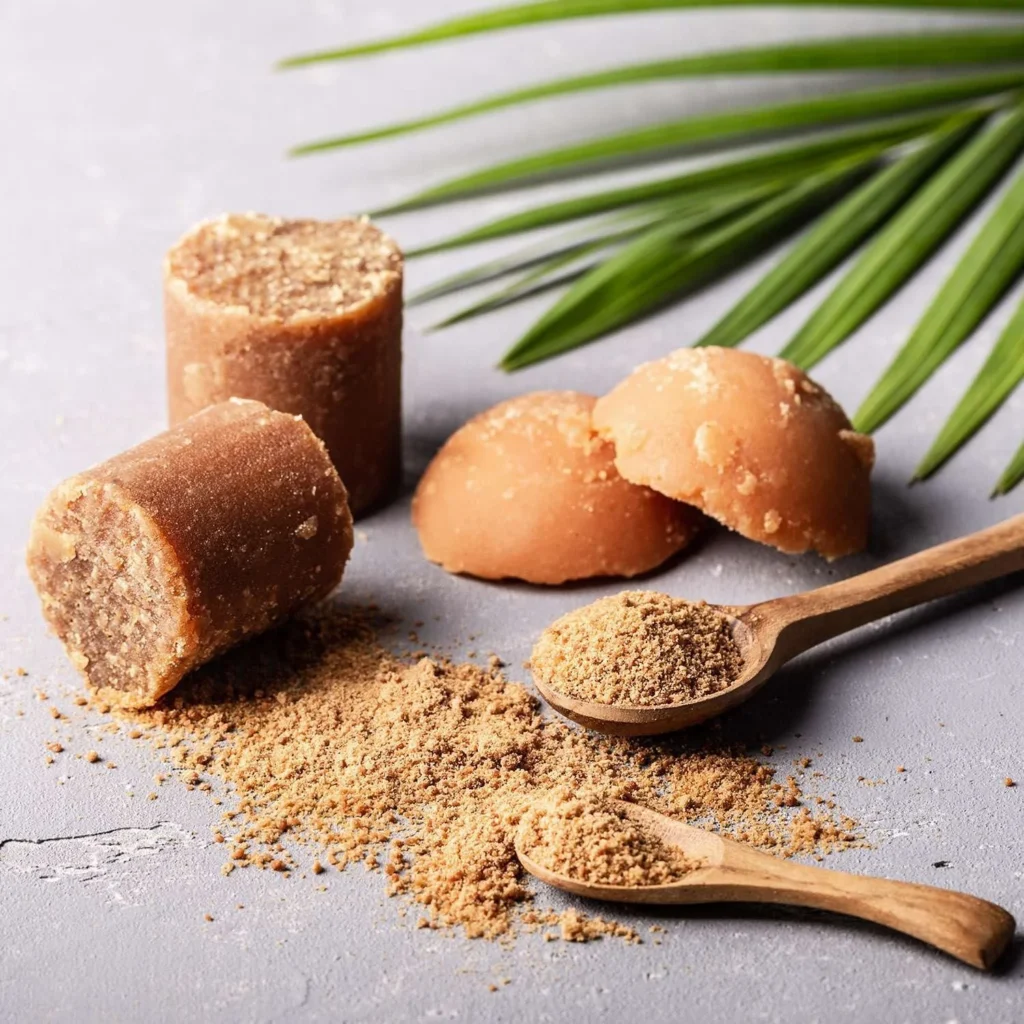Jaggery, an unrefined sugar derived from sugarcane or palm sap, is a traditional sweetener packed with minerals and nutrients. Known for its warming properties, jaggery is a winter favorite for boosting immunity, improving digestion, and providing energy. Explore these seven interesting types of jaggery that can elevate your winter diet.

1. Sugarcane Jaggery (Gur)
The most widely consumed form of jaggery, sugarcane jaggery is made by boiling sugarcane juice into a thick syrup. It’s commonly used in Indian dishes like ladoos, halwas, and chutneys. Rich in iron and magnesium, sugarcane jaggery aids digestion and strengthens immunity, making it ideal for colder months.
2. Date Palm Jaggery (Nolen Gur)
This dark, flavorful jaggery is made from the sap of date palm trees and is especially popular in Bengal and Bangladesh. Known for its high antioxidant content, it’s used in traditional sweets like sandesh and rasgulla. Date palm jaggery not only enhances desserts but also keeps you warm and energized during chilly days.
3. Palm Jaggery (Karupatti)
Made from the sap of toddy palm trees, palm jaggery is a South Indian specialty with a rich, caramel-like flavor. It’s a key ingredient in desserts like payasam and pongal. Packed with potassium and calcium, it helps regulate body heat, blood pressure, and bone health, making it a perfect winter superfood.
4. Coconut Jaggery
Derived from the sap of coconut trees, this soft, moist jaggery has a mild sweetness and is often used in Kerala’s traditional sweets like unniyappam and payasam. Rich in minerals, coconut jaggery is an excellent sugar substitute, improving digestion and boosting immunity during the winter.
5. Bamboo Jaggery
A unique type of jaggery made from bamboo sap, it is popular in Northeast India and Myanmar. With its dark color and earthy flavor, bamboo jaggery is nutrient-rich, containing zinc, iron, and magnesium. It strengthens the immune system and helps keep the body warm in cold weather.
6. Beet Jaggery
Beet jaggery, made from sugar beet juice, offers a distinctive flavor with a deep, earthy taste. Though less common, it’s an excellent addition to winter beverages and desserts. Packed with vitamin C and antioxidants, beet jaggery boosts immunity and helps combat winter illnesses.
7. Black Jaggery (Nawabi Gur)
This dark, intensely flavored jaggery from Uttar Pradesh and Bihar undergoes prolonged boiling, enhancing its nutrient content. Black jaggery is loaded with iron, calcium, and magnesium, helping fight fatigue and cold-associated ailments. It’s a versatile ingredient in traditional sweets and savory dishes.
Why Jaggery is Perfect for Winter
Jaggery isn’t just a sweetener—it’s a powerhouse of health benefits. Whether it’s sugarcane, palm, or beet jaggery, each type brings unique nutrients to help you stay healthy, warm, and energized during winter. Add these varieties to your diet and enjoy a healthier alternative to refined sugar.
